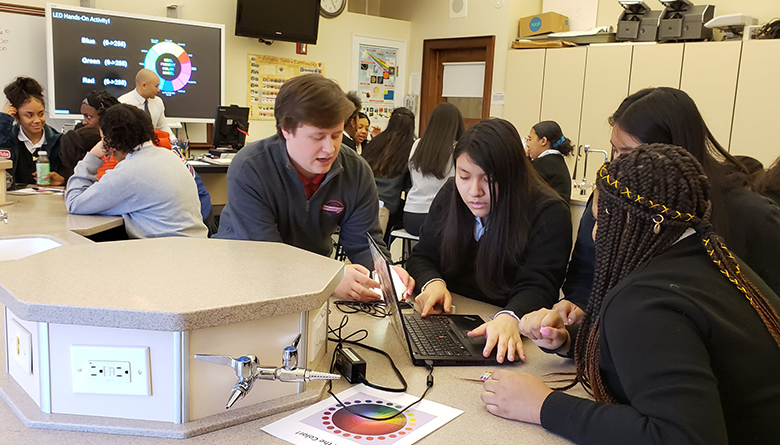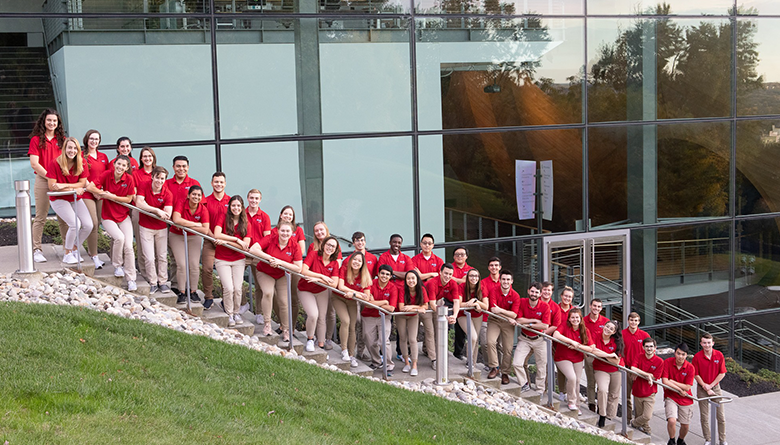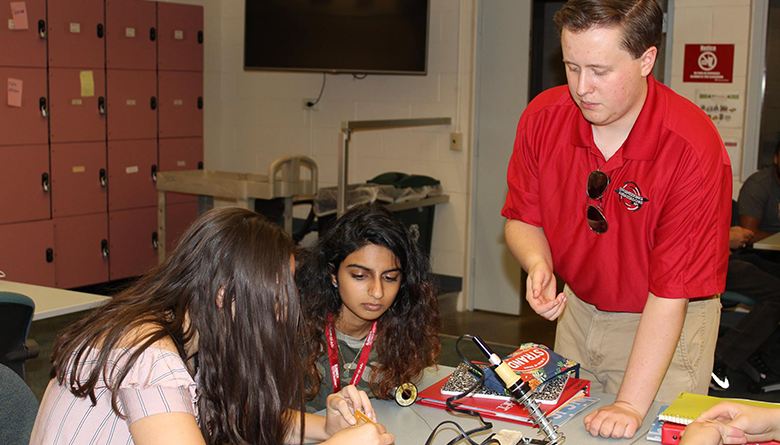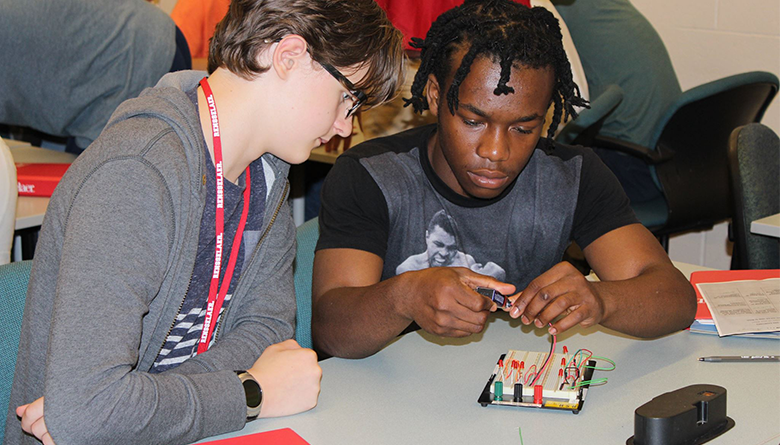By Ian Steenstra ’20, Computer and Systems Engineering
This week we’re celebrating National Engineers Week, an initiative started by the National Society of Professional Engineers in 1951. As we reflect on the many contributions that today’s engineers make to society, we also recognize a critical need to educate and inspire the next generation of engineers.
I was lucky enough to have a father who is an engineer and a family heavily involved in science. Unfortunately, many students do not have such a relationship with STEM at home or within their schools. In fact, according to DiscoverE, an organization devoted to engineering outreach, 74% of educators report that their students do not have the opportunity to meet engineers. Understanding that my personal experience was unique and wanting to make a difference, I became part of Engineering Ambassadors, a program at Rensselaer Polytechnic Institute that inspires students to pursue careers in STEM.
The world has become exponentially more reliant on STEM fields and requires a higher supply of qualified professionals. Therefore, as a society, it is critical that we expose as many students to STEM as possible as early as possible. Not only can this help students find their passions — it will also shape the curious designers and critical thinkers we need for the future.
As an organization, Engineering Ambassadors strives to spark the same curiosity within students, especially those who are underrepresented, about STEM that many of us engineers felt when we first found our passion. Through award-winning presentations and hands-on activities, focused on topics such as fluid dynamics, cellular and tissue engineering, nanotechnology, and nuclear power, we encourage students to explore their potential in engineering at a young age. Given that our radius of direct impact is limited to just the state of New York, it was important to me to develop online resources that can inspire students living elsewhere. To do so, I worked with our program director, Elizabeth Herkenham, to develop an online educational resource that anyone can use. It provides a recorded presentation and step-by-step guide to the hands-on activities that accompany each of our presentations.
We make an effort to reach students outside of the traditional classroom as well. Through collaborations with many organizations, companies, and our own researchers at Rensselaer, we work to expand outreach offerings to the community. For example, I personally worked with Joe Chow, Institute Professor of electrical, computer, and systems engineering, to develop a weeklong summer camp where high school students learned about the electric grid. The program was designed to teach students how to create a solar panel device that instantaneously records and transmits solar radiation measurements to connected devices over Bluetooth. The best part — each student got to build their own device and bring it home afterwards!





